- Home
- / CL Answers
- / Do any supplements help prevent or improve cataracts?
www.consumerlab.com/answers/do-any-supplements-help-prevent-or-improve-cataracts/cataracts/
Save to favorites
This feature is restricted to active members.
Join now to save favorites and get all member benefits, including over 1,400 reviews.
Join NowAlready a member? Sign in here.

Our Members Asked:
Do any supplements help prevent or improve cataracts?
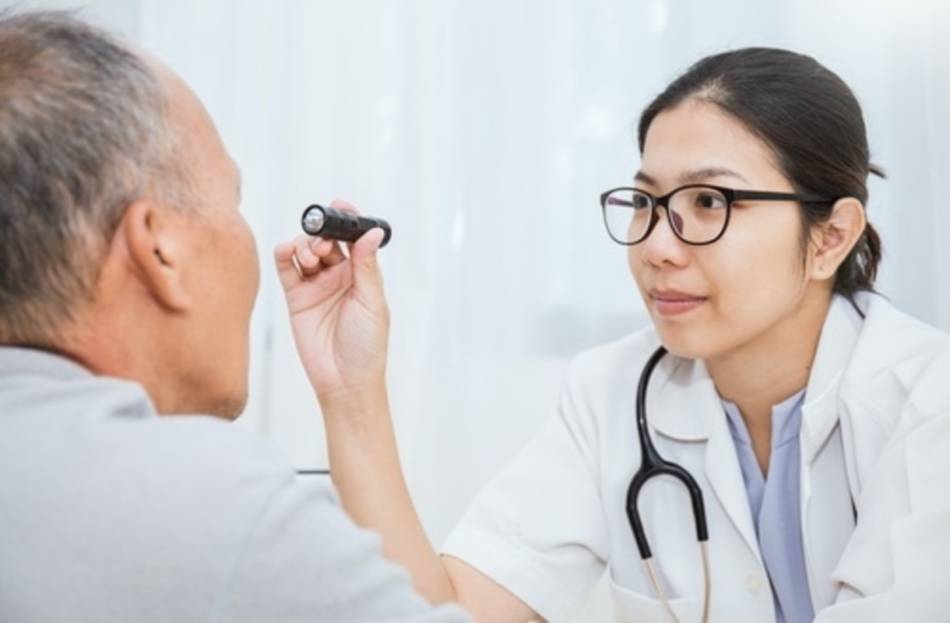
Answer:
A number of supplements have been promoted to preventing or improving cataracts. These include multivitamins, vitamin A, C, and E: the B vitamins niacin, thiamin, and riboflavin; lutein, zeaxanthin, astaxanthin, carnosine, NACA, and St. John's wort. The evidence, however, is better for some than for others. Get the details in the full answer >>
Join today to unlock all member benefits including full access to all CL Answers and over 1,400 reviews.
Join NowAlready a member? Sign In Here.
Join now at www.consumerlab.com/join/
 39 Comments
39 Comments
Join the conversation
Submit your comment
This feature is restricted to active members.
Join now to add comments and get all member benefits, including over 1,400 reviews.
Join NowAlready a member? Sign in here.

Agree to Comment Terms
Please abide by the following:
- If you make a statement of fact, such as whether a type of treatment does or does not work, state your basis -- such as personal experience or a published study.
- If you make a positive or negative comment about a product, note whether or not you have a financial interest in the product or in a competing product.
- Please be respectful in your tone.
- Please do not submit any type of HTML markup or scripting as it will not be accepted, nor will posts that exceed 2,500 characters.
For your privacy, only your first name (from your account) followed by a random number will appear with your comment. Your last name and email address will not be displayed.
Your comment has been submitted
We will review your comment before it is posted.

Related Reviews (7)
Related CL Answers (4)

Related Content
Join over 95,000 Members
Find the best products with instant access to our latest tests & reviews of over 1,400 health products.
Save money by finding high-quality products at lower cost.
Stay safe with the latest clinical findings, warnings, and expert answers.
Suggest products to test.
Stay informed with our e-newsletter.
Ratings of ConsumerLab

The "Updated" date indicates when new information was most recently added to this article. In the full article, the newest information is highlighted in yellow.
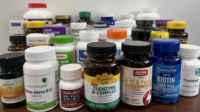

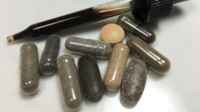
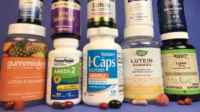

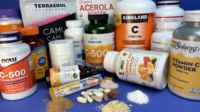
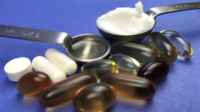

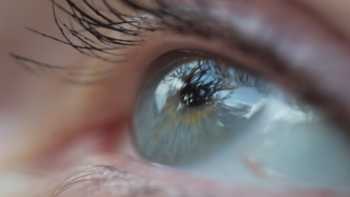

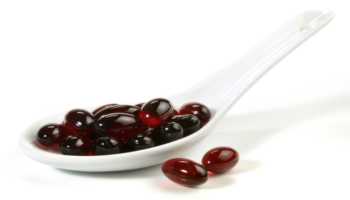





Arthur4709
June 20, 2019Those eye drops have worked for me. I was told to use them 3 x a day, because an optometrist saw cataracts developing, about 3 years ago. At my last check, they were gone! I am VERY regular with them, sometimes only getting them in 2 X day, and you must leave them in 1 min with eyes closed, which I time with my phone. But that's not much trouble, really, once you have it in your routine.
Michael4712
June 21, 2019That's good news but please say which I drops you are referring to.
Ellen4713
June 21, 2019Which eye drops, please?
Alyce4711
June 28, 2019You did not say which eye drops you use, just that you use the eye drops!
Samantha4717
March 11, 2022Please Arthur18073 - would you be so kind as to tell us the name of the eye drops which you mentioned?
Arthur4716
December 01, 2023Vision Clarity by Life Vitality. "lubricating antioxidant eye drops." Including 1% N-acetyl-carnosine. I'm 79. Everyone I know in my age group has had cataract surgery but me. I'm at the lowest level for cataracts.
Linda21284
December 06, 2024I am glad these worked for you! But, just to add information for anyone researching this, there was an FDA warning about these drops.
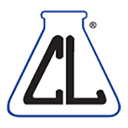 ConsumerLab.com
ConsumerLab.com
December 06, 2024You can find the Warning here https://www.consumerlab.com/recalls/14779/fda-warns-cvs-walgreens-similasan-others-for-eye-drop-violations/.
Reply to this post…
Letcher4707
April 24, 2019I've heard that aloe vera gel inside the eye is very beneficial to the eyes. Of course, it is best to use high quality (home made) aloe gel. Has anyone tried this?
 ConsumerLab.com
ConsumerLab.com
April 29, 2019Hi Letcher - Please see our CL Answer about using aloe for dry eye : https://www.consumerlab.com/answers/aloe-eye-drops-for-dry-eye/aloe-dry-eye/
Reply to this post…
John4706
February 10, 2019This is a followup to the posts about putting castor oil in the eyes and about dry eyes. Alcon now markets lubricant eye drops containing mineral oil under the brand name Systane Complete. This product may have been developed in response to more eye doctors diagnosing dry eyes in their patients. My wife and I use these eye drops and find that they work much better than eye drops without this mineral-oil lubricant. We have no other interest in this product or in any competing product.
Reply to this post…
Kathleen4704
August 07, 2018Cataracts develop in children overseas during droughts I believe -- such as in the Near East. I think it was UNESCO was sending eye MD's over a few years back, to help out with plastic lens replacements for "kids with cataracts," so the children could progress into productive normal and fulfilling adult life. Let us not forget the value of pure wholesome water in our natural health plans. I notice if I take a krill oil capsule that about 20 minutes or so later I can "see" better - more colors, clearer visual perception. I can't take the oils all week, but occasionally if I feel dry, or haven't been getting olive oil I pop one and it seems to make a difference for the morning at least. Ghee is good too, or any oil - 1/4 tsp of olive oil, or sesame. I like occasionally the eye drops for "dry eye" too.
With oils and drops and all supplements, even though the expiration date may be a year or two in the future, I think their effectiveness diminishes over time. I even toss out jam and other fridge stuff after about 30 days or 6 weeks maximum. Fresh is best. Fresh water too - I get a glass 5 gallon bottle of drinking water every 3 weeks or so (from a QC'd spring). About 70 don't have cataracts yet, although at one point a surgeon mentioned he saw a "fragment." I do take a multi vitamin and mineral daily.
 ConsumerLab.com
ConsumerLab.com
August 07, 2018Yes, you are correct that cataracts in the young have been associated with severe dehydration (https://www.ncbi.nlm.nih.gov/pubmed/2930754) and adequate hydration is important for proper vision.
Reply to this post…
Stan4702
August 27, 2017Especially with regard to age-related conditions such as cataracts, whether supplementing through pills or food or both, it's good to keep in mind that the body's absorption capabilities may very well be substantially reduced, while the needs may be increasing.
Reply to this post…
Wendy4701
August 27, 2017Hello Wallace8556,
Would you please post the brand name of the pharmaceutical grade castor oil.
Thank you.
Reply to this post…
T Allen
February 08, 2017I had confirmation by my eye dr that the cataracts I had were gone 3 years later after taking L-Glutamine (500 mg) and Alpha-Lipoic (600mg) daily for another health issue. I actually noticed an improvement within months in my vision. I stopped the Alpha-Lipoic due to thyroid issues to see what would happen (my TSH went up) and cataracts came back. I restarted the AL at the usual dose with no improvement and then increased the dosage to the current 300mg 2 x day. I haven't had my eyes rechecked but I no longer have "shadows" again. I wish they'd do more research on this but then they'd lose money on cataract surgeries!
Stephen4700
August 28, 2017I have been taking Glutamine and Alpha-lipoic acid for decades. I will have cataract surgery in 21 days. One should not assume consecutivity equals causality. There may have been myriad other changes in your life and your body of which you took no notice, not that any change at all should be considered the cause. Sometimes the body does a better job at remission than others. 500 randomly chosen people having the same experiences would be meaningful but a handful of people who, rather than being randomly chosen, only have the experience in common is anecdotal.
Reply to this post…
Lydia4698
July 03, 2016Did anyone got the Castor Oil brand name which helped Wallace8556 with his vision???
Reply to this post…
Robert4694
July 03, 2016I am an 85 year old male with cataracts. About 4 years ago my cataracts were making reading difficult. I read about the Russian L-carnosine eye drops and decided to try a supplement with that in it. I chose Doctor's Best Zinc Carnosine Complex (zinc l-carnosine). Since starting the supplement my eyesight has greatly improved. I now see colors that I had not been seeing and my vision is significantly improved. An ophthalmologist remarked that my cataracts are very translucent. I have long had a zinc deficiency perhaps related to celiac disease.
I have no financial interest in Doctor's Best.
Richard4695
December 10, 2020I make my own N-Acetyl L-Carnosine eye drops due to the absurd prices they ask for this. I boil everything used for at least 5 minutes and am trying to make a 1% solution using distilled water. I make small amounts at a time and keep it in the fridge. Helps a lot with dry eye issues. Have not had eyes tested recently...but had the start of a cataract in one eye when last tested. Wouldn't try this unless you think you know what you are doing....you can't take chances with stuff you put in your eyes.
 ConsumerLab.com
ConsumerLab.com
December 16, 2020Thank you for sharing. While two published studies have evaluated the effects of 1% N-acetyl-carnosine eye drops on cataract appearance and visual acuity in people with cataracts, the way these studies were designed and conducted is questionable. Currently, there is no convincing evidence that N-acetyl-carnosine improves or prevents progression of cataracts. We agree with your recommendation to be cautious when using homemade eye drops, as these can become contaminated with microbes, which can cause eye infections and worsen symptoms.
Richard21963
February 12, 2025After getting tested for new glasses last year the doctor said that I had a cataract in one eye and I should expect to need surgery in maybe 2 years for that cataract. This is compared to siblings that are generally 2 to 5 years younger and have already had cataract surgery. I also use other eye supplements other than carnosine drops.
Reply to this post…
Wallace4676
March 27, 2016I am an 84 year old male with 20-20 vision. In 2011 I went for testing at the eye clinic at the VA Medical Center in Washington DC in order to qualify for renewal of my driver's license. The results of the eye examination were that I was 20-30 in the left eye and 20-40 in the right eye, and then the eye doctor said "that's good enough for DMV and we'll give youthe papers so you can renew your driver's license. She then added that she saw "evidence of cataract formation" and requested I return for "more definitive" testing in about one month. She mentioned that we could discuss the "cataract surgery" at that time.
The mention of surgery caused me great concern, even though I have family members and friends who have been through that with little or no problems. But my concern led me to do some research over the next couple of days where I found that, although doctors will always tell you that surgery is the ONLY remedy for cataracts (a billion dollar per year industry!), there are a number of other natural methods for addressing cataracts.
I settled on one that seemed to be the least expensive. I started following a protocol of dropping 2 drops of pharmaceutical grade castor oil in each eye at bedtime each night.
Three weeks later I returned to the VA eye clinic for "more definitive" testing. The results announced were 20-20 vision in both eyes, and NO EVIDENCE of cataracts forming.
"What have you been doing differently?" I was asked. I told the doctor about my experiment with castor oil.
Immediately, she called in the Chief Ophthamalogist, who retested me thoroughly, only to get the same results. She looked at me, hands on her hips, and said: "Castor Oil, huh? Well, I don't think I could recommend that to any of my patients!"
I still drop the castor oil in each eye at bedtime every night. Do not use eye glasses for reading or driving, and have not felt any need for re-testing for cataracts since that time.
Castor Oil, huh? Someone said to me "sounds to good to be true!" But it is true, just as I've stated it here for you.
 ConsumerLab.com
ConsumerLab.com
March 31, 2016Hi Wallace - thank you for sharing your experience. We are not aware of any published research on castor oil for cataracts. Where did you learn about this?
Gloria4681
May 05, 2016Thanks, Wallace, for sharing your experience of using pharmaceutical grade castor oil as eye drops to treat cataracts. And best to you! Please tell me the brand name of the pharmaceutical grade castor oil and where one can purchase it. Can you also tell the source of your information of using castor oil for cataracts. Thanks, Gloria.
claudia4682
July 03, 2016please tell us where you got your castor oil so that others can try it. Thank you.!!!!
sanford4683
July 03, 2016I am an ophthalmologist with many years experience, I am also a student and advocate of holistic healing. I seriously doubt that the castor oil drops had or have any effect on cataracts. I do believe that the drops improved his vision. Wallace probably has dry eyes. Dry eyes are a common cause of blurred vision. Usually we treat the condition with lubricating eye drops and omega 3 supplements. Wallace has been lubricating his corneas with castor oil. A bit unusual but apparently quite effective.
T Allen
February 08, 2017Classic mainstream medical establishment answer. Totally ignores the fact that 2 ophthalmologists saw the patient with and without cataracts! And those same 2 Drs missed the fact that the patient had dry eye! Amazing.... I would suggest that sanford11032 opens their eyes (and mind) to the fact that they don't know everything and instead do a little research themselves.
 ConsumerLab.com
ConsumerLab.com
February 09, 2017Hi Tracey - It is quite likely that sanford11032 is correct. There are numerous studies showing the effectiveness of castor-oil based eye drops for treating dry eye, although none regarding its use for cataracts. Studies include:
https://www.ncbi.nlm.nih.gov/pubmed/12414410?dopt=Abstract
https://www.ncbi.nlm.nih.gov/pubmed/17251808?dopt=Abstract
http://www.sciencedirect.com/science/article/pii/S0149291815000090
https://www.ncbi.nlm.nih.gov/pmc/articles/PMC3585441/
Jules4686
May 19, 2017Here's an article stating that high potency Serrapeptase reduces or eliminates early cataracts. https://www.tolwellnesscenter.com/blogs/news/15772765-high-potency-serrapeptase-helps-eliminate-cataracts-in-early-stages
 ConsumerLab.com
ConsumerLab.com
May 19, 2017Hi Jules - We are not aware of any clinical studies showing that serrapeptase reduces or eliminates early cataracts. For more about serrapeptase, see our posting at
https://www.consumerlab.com/answers/does-serrapeptase-work/serrapeptase/.
Jules4689
May 19, 2017That doesn't surprise me, since Serrapeptase is fairly new compared to more traditional supplements. Also I believe it's not widely known. But I've looked into it a lot on the Internet and there are quite a few anecdotal good reports. It seems to do no harm, so I use it.
 ConsumerLab.com
ConsumerLab.com
May 25, 2017Hi Jules - Just be sure to see the information about safety in the CL Answer about serrapeptase: https://www.consumerlab.com/answers/does-serrapeptase-work/serrapeptase/
AnnAnn
January 26, 2020Did this link work for anyone? When I try to reach this link I get "404 "PAGE NOT FOUND".
mary4691
August 27, 2017Perhaps Wallace was misdiagnosed by MV doctor.
bette4678
February 08, 2017Hi Wallace,
Are you still keeping those cataracts away with the castor oil? Also, I have dry eyes and if the oil helps with that I would love to use it.
Please gives us all an update regarding your castor oil eye drops.
Thanks!
Reply to this post…
Helen4673
March 27, 2016There were various studies and concerns about the long-term use of yogurt, particularly in low-fat versions that contain added milk powder. Galactose is a small molecule that can get into the lens. In fact, galactose cataracts have been experimentally induced in animals easily and have been studied extensively.
But it's unclear at what dose this appears in humans. Overall yogurt seems to have a beneficial effect, according to one 1993 study. But its metabolism may change among the elderly.
 ConsumerLab.com
ConsumerLab.com
March 31, 2016Thank you for sharing this information Helen. You are correct this has been shown in rats. There do not appear to be any studies in people other than the one you mention (http://www.ncbi.nlm.nih.gov/pubmed/8336207).
Reply to this post…
sonja4666
August 13, 2015Sunglasses!
Reply to this post…